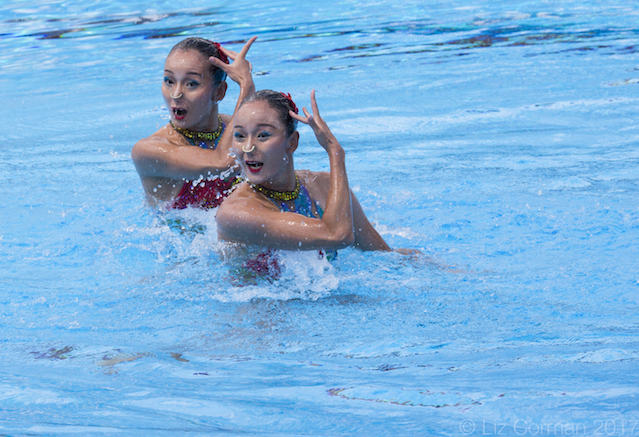Jiang Tingting and Jiang Wenwen did not start the season with the goal of Budapest in mind. The two had been staying away from the big international stage since 2013, and they simply wanted to enjoy the sport once more. However after successful results throughout the season and at the People’s Republic of China Games in May, they were selected to be the country’s duet at the 2017 World Championships. Now, they can add one more world medal to their collection after winning silver on July 16 during the technical duet final.
The Chinese twins delighted the crowd with their fast and intricate flamenco, Spanish-inspired routine, very similar to the routine they had back in 2009 with some minor tweaks. They got a score of 94.0775 in Budapest.
Coming back to this level is even more impressive as they accomplished a feat very few synchronized swimmers have done before: to come back at the elite level after having children.
“We returned to training two years after giving birth,” they explained. “We encountered many difficulties and challenges, but we overcame them with motivation because we love this sport so much. We are really happy that today we could show our best.”
Obviously, the Russian pair of Svetlana Kolesnichenko and Aleksandra Patskevich won the gold medal with a score of 95.0515. They made their debuts as a duet here with a jazzy routine to the song “All That Jazz,” and displayed clean technique and fast moves.
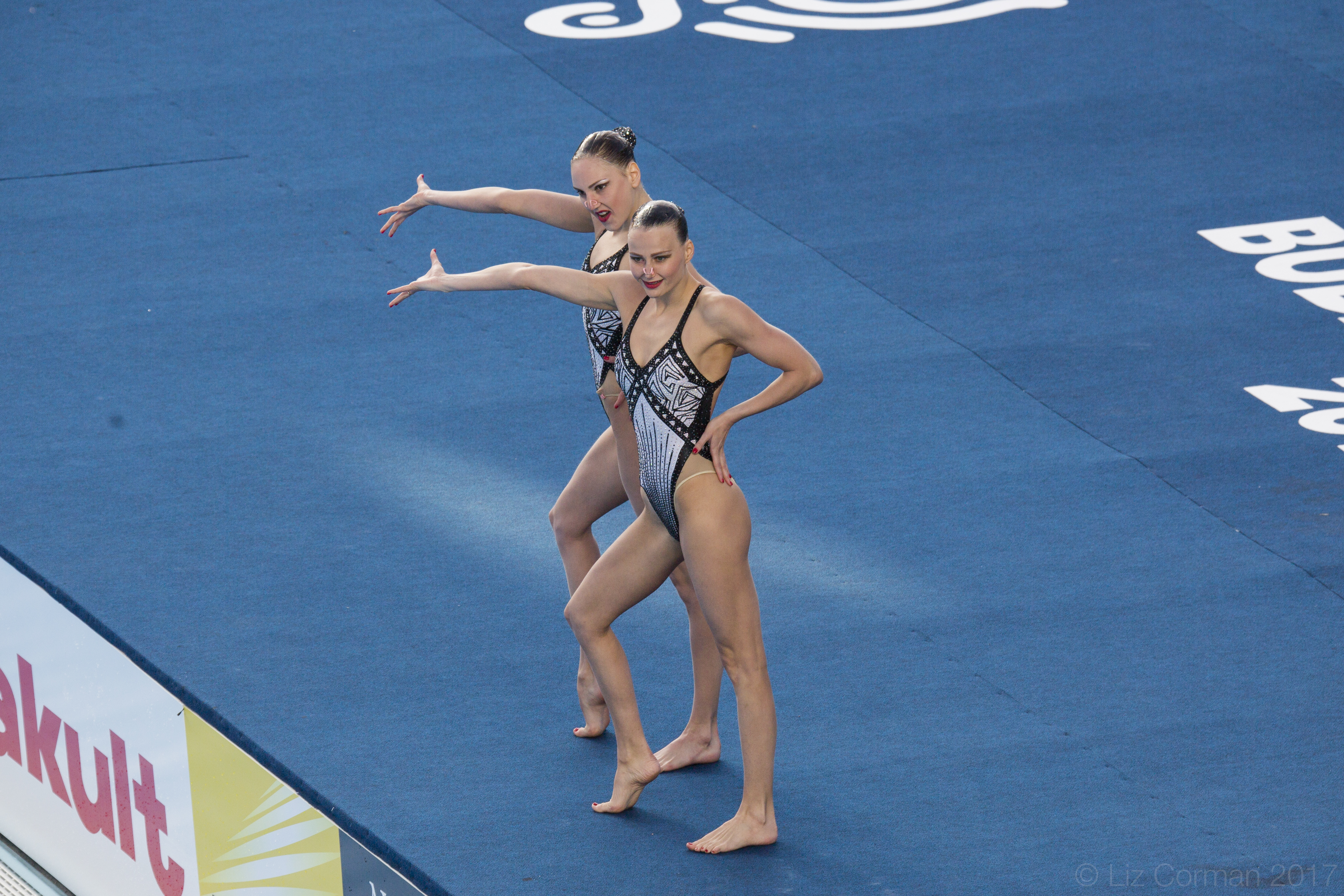
Their routine was highly awaited here as the new Russian duet to replace the iconic Natalia Ischenko and Svetlana Romashina duet. However, Patskevich admitted they never really thought about these expectations.
“We were more focused on the results and trying to do our best and achieve success,” she said. “The gold medal we won today exactly proves we are on the right path.”
Ukraine was able to overturn the 2016 Olympics rankings by beating Japan for the bronze medal with a score of 92.6482. Voloshyna and Yakhno have only been swimming together for a season, but kept the same routine than in Rio set to a Ukrainian traditional music. Japan‘s Yukiko Inui and Mai Nakamura received a 92.0572 for fourth place.
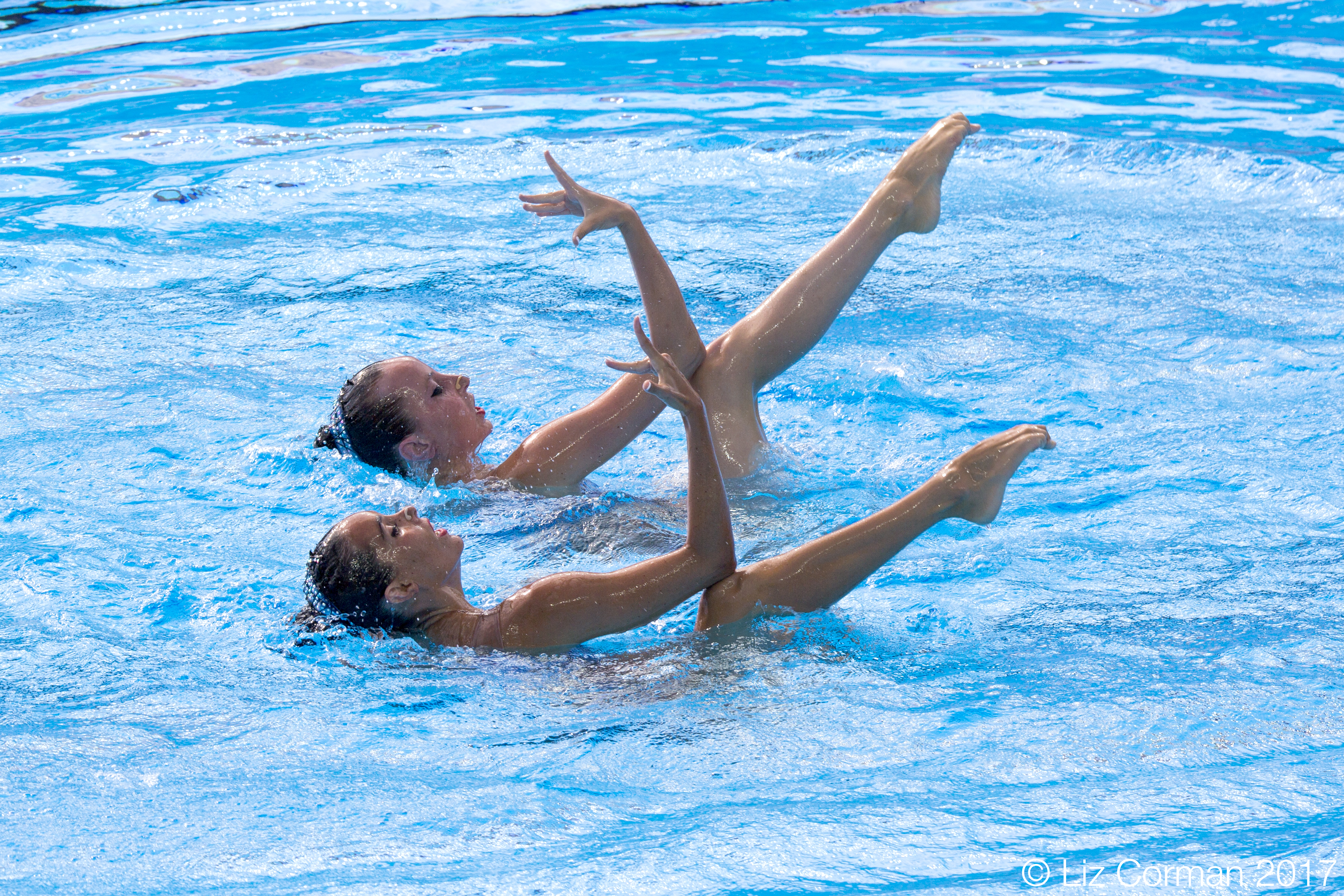
The Spanish duet of Ona Carbonell and Paula Ramirez, also a new pair from this season, finished fifth with the same sea-themed routine than in 2016. Their goal heading into this championship was to at least maintain the Olympics placement, and they did just that with a score of 90.7507.
Linda Cerruti and Costanza Ferro from Italy finished sixth with a score of 89.2463. The fairly new Canadian pair of Claudia Holzner and Jacqueline Simoneau was seventh with 87.6523, a great result for a duet that has only been training together for about a month.
“For having only trained four full weeks together as a duet, I think we pulled it off quite well,” said Simoneau. “We are both swimmers who have a similar amount of energy when we swim which is why we gelled so quickly. So I’m looking forward to seeing what’s in the future for us.”
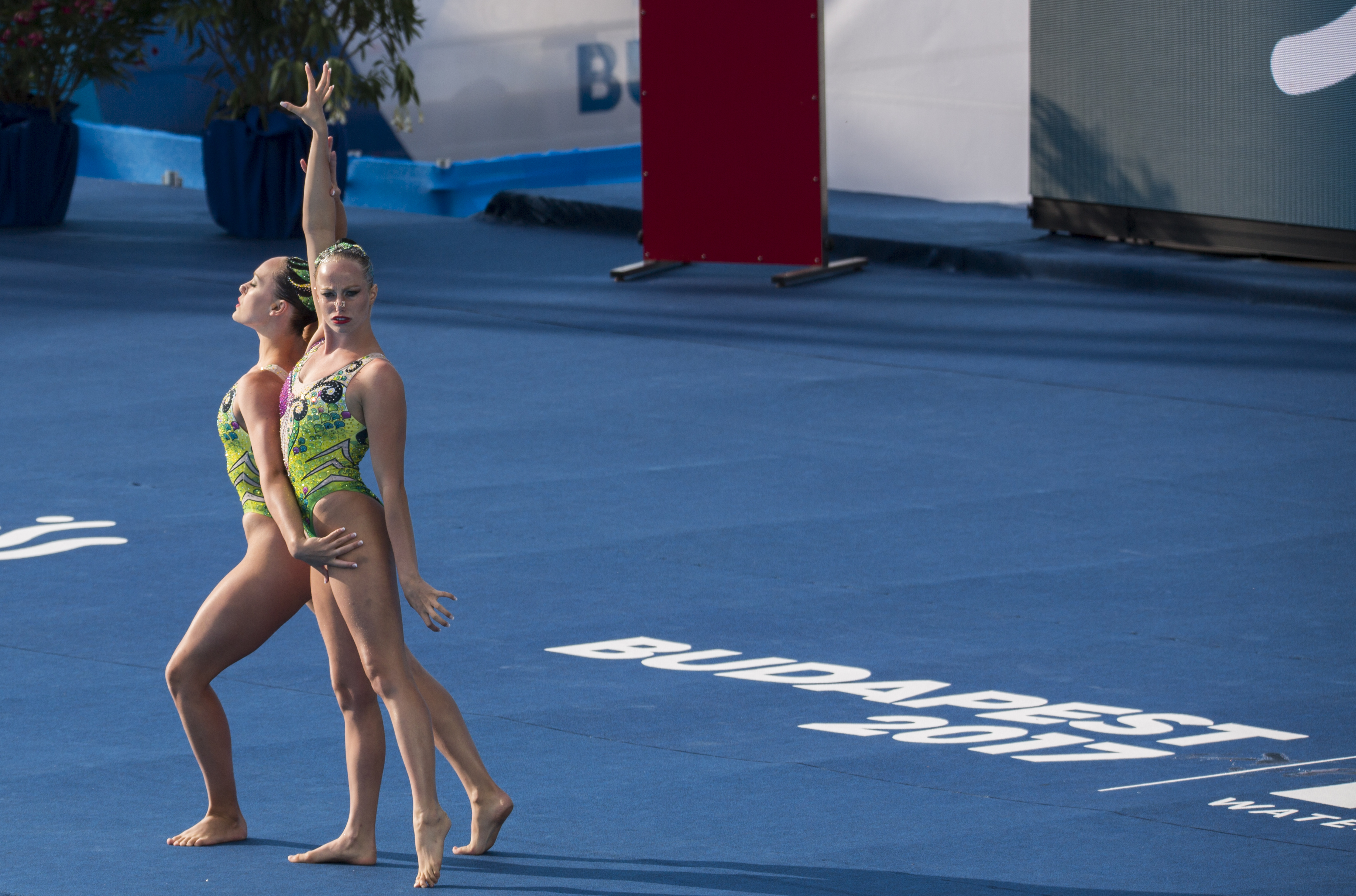
Many duets in this event kept the same routine as last season, as the elements are about to be changed for next quad, and the Austrian pair was no exception. Sisters Anna Maria and Eirini Alexandri were able to overtake Greece with their Michael Jackson routine. by the slightest margin in finals to finish in eighth place with a score of 85.7694, against Greece’s 85.7439.
“It is better because we can understand each other,” they explained on how it feels to swim with a sister. “For example she says something to me, I don’t take it so [personal], there are no misunderstandings. It helps us because sometimes we think the same thing at the same time.”
The experienced duet of Karem Achach and Nuria Diosdado from Mexico landed in 10th with a score of 85.2599, very close to Austria and Greece.
For their first senior world championships, the Tremble twins from France managed an 11th place with a score of 83.9734. They were overall pleased with their performance today, although disappointed to have missed an element. The two are thrilled to be here and are still quite starstruck and nervous to be in this competition.
“I haven’t realized it yet,” said Laura. “I think it’s going to take me a while for it to hit me that we just swam our duet at the senior World Championships.”
To handle the pressure and assure themselves a calmer swim, the twins have a very specific ritual with their noseclips in every competition, by fear of losing them like they have too often earlier in their career. While Charlotte wears two at a time when she swims, Laura is very precise in the way she selects hers.
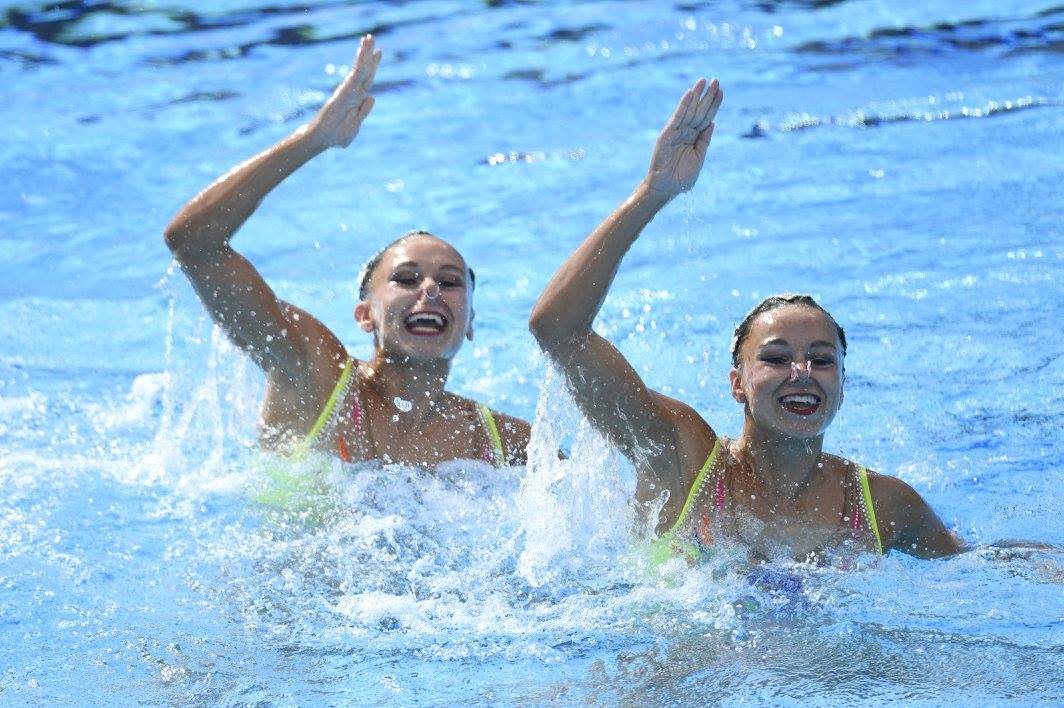
“I have a huge bag full of new noseclips,” Laura explained while her sister giggled. “Before the swim, I pick three that are really great. I keep them with me at all times and I can’t have anybody touch them. Then I rank them by which one is the best. Right before going, I pick the first one, try it out, if it doesn’t stay, I take the next one. Usually the first one works though. It’s something that really stresses me out at each competition, so doing this helps me.”
Finally, the American pair of Anita Alvarez and Victoria Woroniecki rounded out the rankings by finishing 12th with a score of 83.4715.
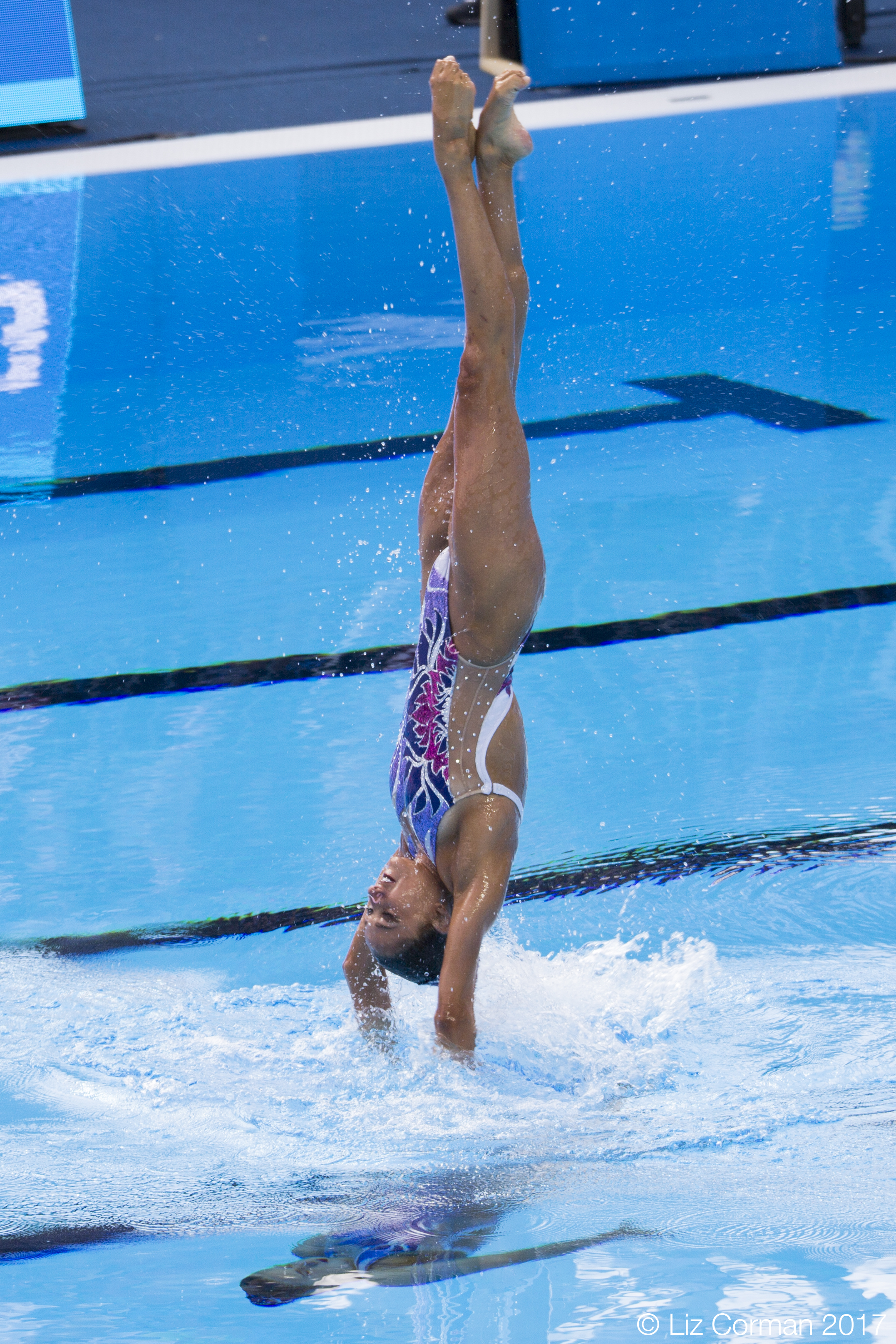
“We are pretty happy,” said Alvarez. “We were 12th, we were at the bottom so we really had nothing to lose from here.”
This is a new pair for the U.S. following the retirement of 2012 and 2016 Olympian Mariya Koroleva, but Alvarez admitted the two clicked very quickly in and out of the water. Moreover, Woroniecki displayed great maturity for her first time on this senior world stage at only 16 years old, and Alvarez only had praised for her duet partner.
“She’s only 16 and it’s her first Worlds, but she’s done an amazing job,” she said. “Looking back to where I was when I was 16, I couldn’t imagine being at a senior world championships.”
Article written and interviews by Christina Marmet.
Cover photo by Liz Corman.

